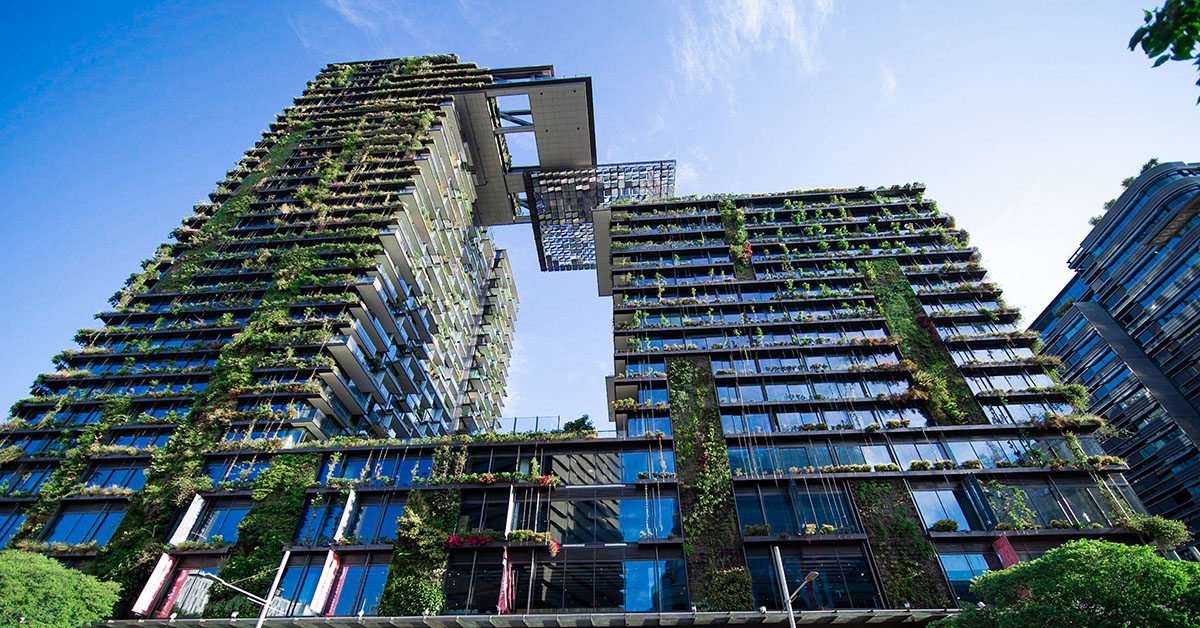Strategic investor engagements in sustainability: Timing matters
The Global Real Estate Engagement Network (GREEN) actively drives improvement in climate risk management within the real estate industry by engaging and steering companies toward achieving the Paris Agreement’s climate goals. The critical question is: At what point do socially responsible engagements hold the most potential to curb negative externalities in the real estate sector? And once these engagements bear fruit, how do they effectively contribute to reducing CO2 emissions at the property level?
Alexander Carlo, a Doctoral Candidate in Finance at Maastricht University’s School of Business and Economics, addresses these questions by providing insights into the most recent research findings on the topic.
SRI Engagement in the real estate industry
The built environment accounts for approximately 40% of global greenhouse gas emissions, making reducing carbon emissions from the real estate sector vital in combating climate change. Towards this end, increasingly more institutional investors initiate engagements focused on social responsibility. Yet, until recently, empirical evidence on the effectiveness of these engagements in the real estate sector was sparse. A recent study by researchers at Maastricht University and the Massachusetts Institute of Technology aims to fill this lacuna by assessing the effectiveness of engagement in the real estate sector at the property level. Their research assessed 229 engagements involving REITs in the S&P 1500, encompassing 61,870 properties owned by 207 REITs from 1990 to 2022. Figure 1 displays the location of all REIT-owned properties in the study’s sample.
Tactics to influence policies
Shareholder engagement involves various tactics investors use to influence the policies and practices of the companies they invest in, especially concerning environmental and social risks. These tactics range from proxy voting on shareholder proposals and participating in investor letters and statements, to engaging directly with management through discussions and submitting shareholder proposals. This paper gathers data on public initiatives for S&P 1500 companies from the Institutional Shareholder Services (ISS) proxy voting dataset and uses this information as the basis and definition of engagement.
Figure 1

Sources for retrofitting activities
To assess the environmental and social implications of engagements, the authors focus on REITs’ retrofitting activities. Specifically, they utilize the EnergyStar guidelines to identify environmental retrofits, while for socially relevant permits, the authors adhere to the classifications provided by WELL and Fitwel. Socially relevant permits are building permits that focus on retrofits specifically tied to improving the social score from an ESG perspective. WELL and Fitwell consider the accessibility of properties, water and air quality, amenities, and design as critical social performance indicators. – Thus, permits focusing on these matters are classified as socially relevant. In the research paper and the rest of this blog, permits that specifically focus on improving the building from an environmental perspective and that focus on the social aspect are jointly called sustainable permits.
REITs perform sustainable retrofits when engagement succeeds during retrofit cycles
The research reveals a significant impact of socially responsible engagements on sustainable practices in real estate. Specifically, when successful socially responsible engagements coincide with traditional retrofit cycles, REITs are likely to perform more sustainable retrofits (refer to Figure 2). This finding is economically significant as successful engagements increase the share of sustainable permits by 64%. The authors further strengthen their findings by demonstrating that each sustainable permit obtained directly reduces CO2 emissions, decreasing emission intensity by 0.193 kg per square foot. Given an average emission intensity of 8.695 kilograms per square foot, this equates to a reduction of approximately 2.22% in carbon emissions per property per sustainable permit issued.
Figure 2

Note: Figure 2 displays the unadjusted share of sustainable over total permits before, during, and after retrofit cycles demeaned at the pre-retrofit cycle level. The time to retrofit cycle indicates the distance between the current time and the quarter that signals the start of a retrofit cycle. To elaborate, the values -2 or 3, respectively, represent two quarters before and three quarters after the initiation of a retrofit wave.
Successful engagements: real impacts but not via liquidating brown properties
One major concern is that REITs might reduce their carbon footprint by divesting their most polluting properties. However, the research indicates that socially responsible engagements do not lead to an unusual increase in property sales. Furthermore, an analysis of properties that have been sold off shows that these sales do not result in a significant decrease in the issuance of sustainable permits post-engagement.
Moreover, the study finds that socially responsible engagements do not hinder the progress of conventional retrofitting. Despite concerns that financial constraints might deter REITs from implementing standard retrofits when pushed by socially responsible investors to adopt more sustainable improvements, this proves unfounded. Ultimately, the research concludes that the increase in sustainable permits driven by socially responsible engagements does not come at the cost of either portfolio reallocations or the neglect of conventional renovations.
Engagement has a double-edged impact on externalities
In contrast, the authors also note that unsuccessful sustainable engagements lead to a 31% decrease in the overall issuance of sustainable permits. One interpretation of this decrease is that REITs see the lack of success in socially responsible efforts as a sign that investors have limited interest in environmental and social issues. Thus, socially responsible engagements can have a dual impact on carbon emissions, acting as a double-edged sword. To make an impact, investors need to show more concern.
Implications for engagement in the real estate sector
This study highlights the significant impact of socially responsible engagement on reducing CO2 emissions in the real estate sector, emphasizing the effectiveness of aligning these engagements with the retrofit cycles of properties. It underlines the importance of institutional investors collaborating to amplify their influence, suggesting that combined efforts can lead to more substantial environmental improvements. By strategically timing engagements and fostering partnerships, investors can enhance the success of sustainability initiatives and drive more meaningful changes in the industry. This collaborative and well-timed approach not only maximizes the environmental benefits but also bolsters the overall effectiveness of the engagements.
Call upon other investors to collaborate to achieve real-world impact
GREEN is a not-for-profit collaborative engagement initiative for institutional investors, focusing on reducing climate risk in the real estate industry. GREEN members acknowledge the importance of collaboration to initiate change and maximize impact. We, therefore, call upon other institutional investors to join GREEN and work together towards a Paris-aligned real estate sector. Check the investor statement for more information.
Disclaimer
The views presented in this article reflect the views of the GREEN Secretariat but do not necessarily represent those of the individual GREEN members.






